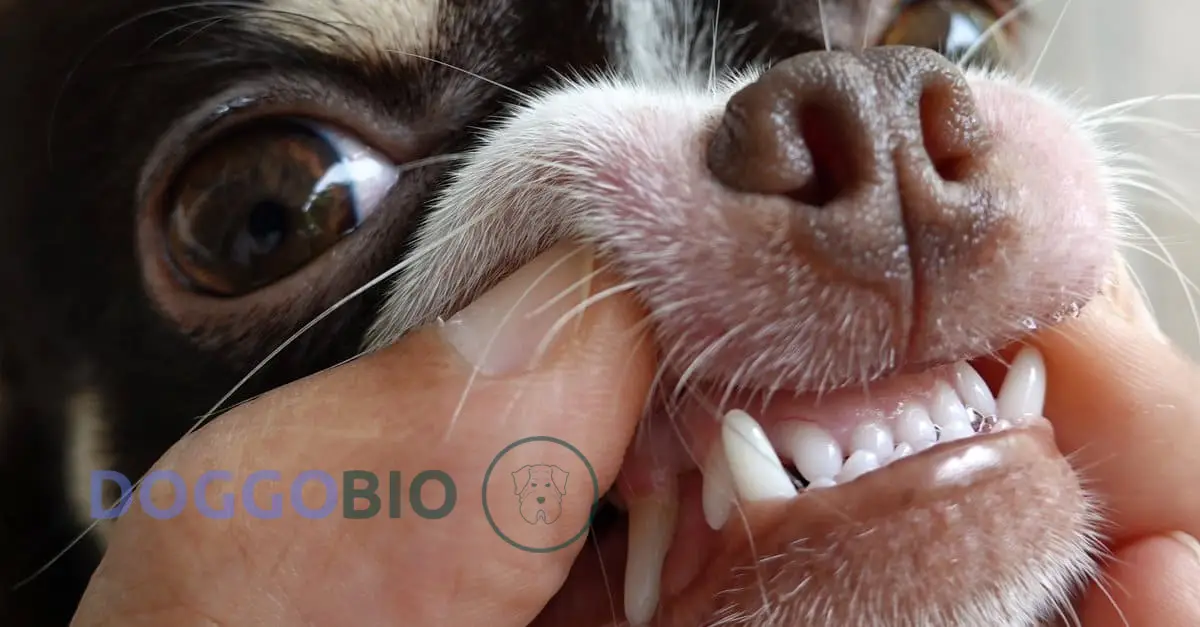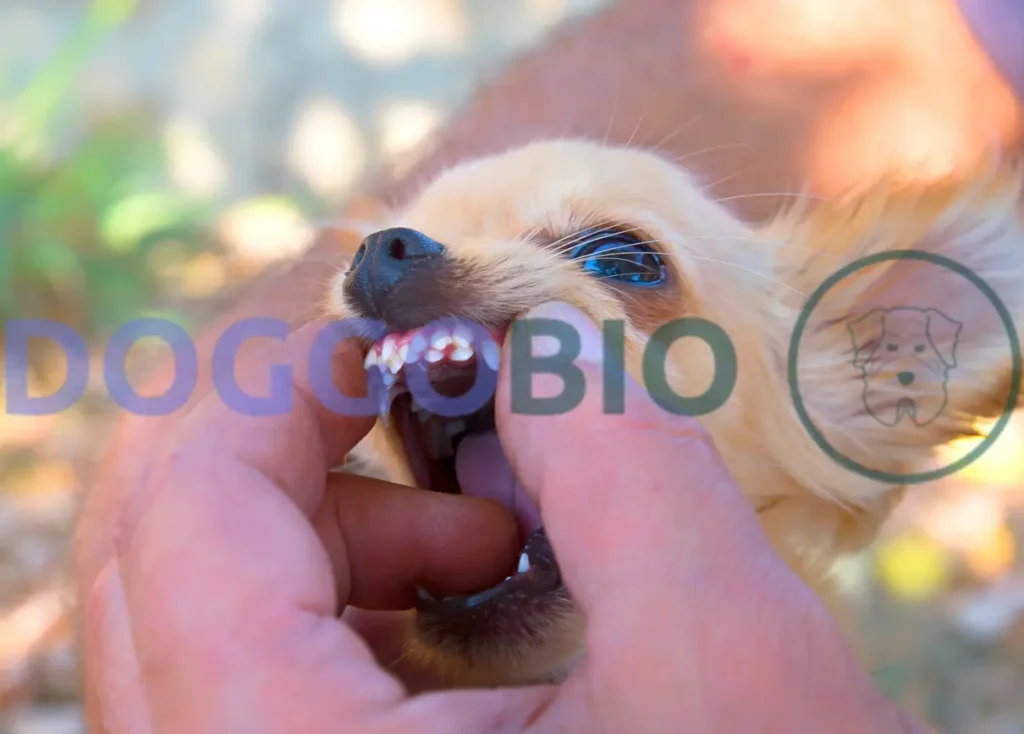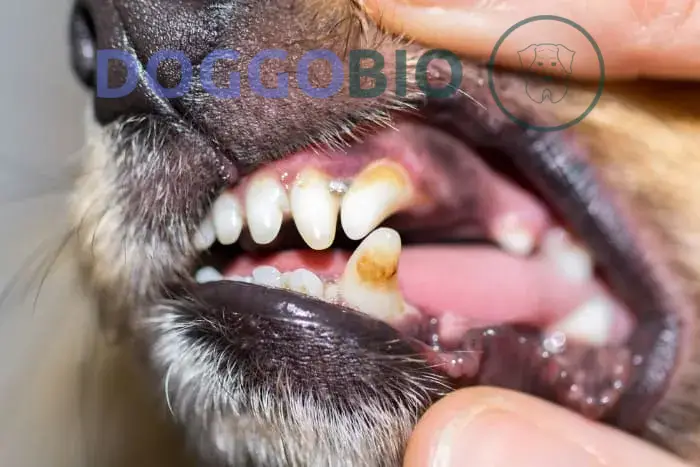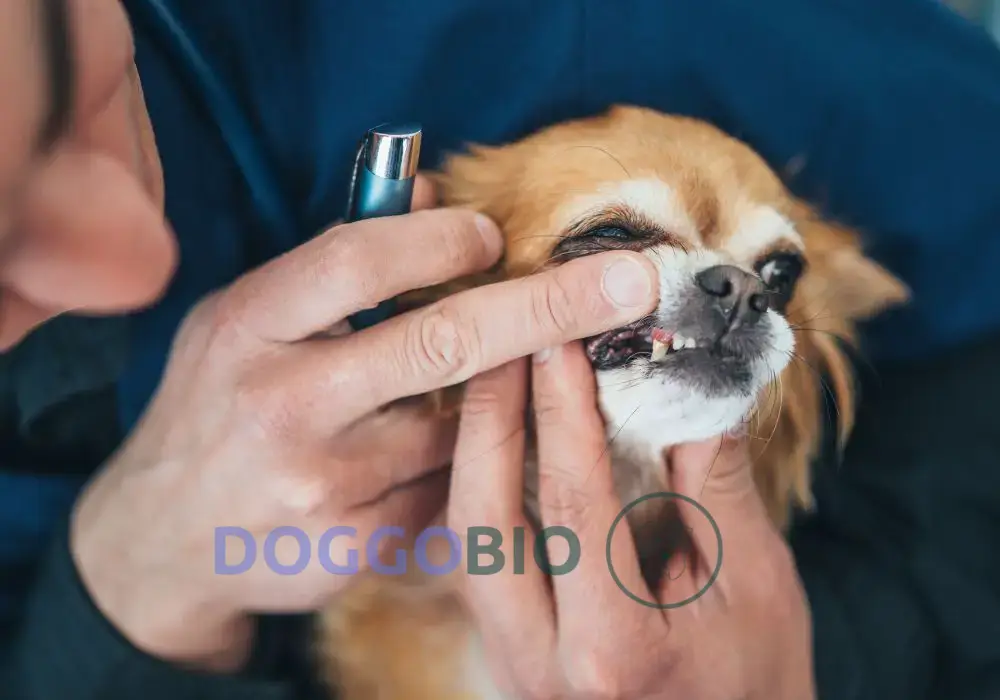The Chihuahua, a tiny dog breed known for its energetic spirit and iconic appearance, possesses a unique dental structure that sets it apart from many other species.
Like all puppies, Chihuahuas are born with deciduous (baby) teeth, eventually giving way to their permanent adult teeth. However, the journey of Chihuahua teeth can be complicated.
Due to their small jaw size, Chihuahuas often face dental challenges, such as overcrowding, retained baby teeth, and a higher propensity for dental diseases. Proper dental care, regular check-ups, and understanding the intricacies of their dental anatomy are crucial for ensuring the oral health of these petite canines.
This introduction delves into Chihuahua teeth, shedding light on their development, common dental issues, and care tips to keep their pearly whites in top condition.
Brief Overview of Chihuahua Teeth
| Feature | Description |
| Total Teeth (Adult) | 42 |
| Type of Teeth | Heterodont (4 types: incisors, canines, premolars, molars) |
| Incisors | 6 upper, 6 lower; small, chisel-shaped; for grasping and cutting |
| Canines | 4 (2 upper, 2 lower); long, pointed; for tearing and gripping |
| Premolars | 8 upper, 10 lower; sharp-edged; for tearing and chewing |
| Molars | 4 upper, 6 lower; broad, flat; for crushing and grinding |
| Deciduous Teeth | 28; erupt around 3-6 months, replaced by permanent teeth by 6-8 months |
| Common Chihuahua Dental Issues | Overcrowding, malocclusion (misalignment), retained baby teeth, periodontal disease |
| Preventative Care | Regular brushing, dental chews, professional cleanings by veterinarian |
How Many Teeth Does a Chihuahua Have?
Chihuahuas have the same dental count as larger dog breeds despite their small size. Born toothless, they develop a complete set of 42 teeth as they mature. This dental journey, from baby to adult teeth, is essential for digestion and adaptation to their environment.
Proper dental care during this phase ensures long-term oral health for these petite canines. Regular check-ups and a balanced diet can help maintain their dental well-being.
When do chihuahua puppies lose their teeth?
Chihuahua puppies begin losing their milk teeth at around 3 months and usually have all their adult teeth by 7 to 8 months.
During this teething phase, they may experience discomfort and itchiness, so providing chew toys and monitoring their dental progress is essential. Finding scattered tiny teeth around the house is common but keep a close eye to ensure a smooth transition without any issues.
What Types of Teeth Do Chihuahuas Have?
Chihuahuas have four types of teeth, each with a specific function:

1. Incisors
Chihuahuas use their incisors, the tiny teeth at the front, for delicate tasks. These teeth are instrumental in picking up small objects, grooming, and even certain play behaviors.
Their teeth are most visible when Chihuahua grins or pants, giving them their characteristic smile. Beyond these functions, incisors also shape how Chihuahuas pick up their food, ensuring they can grasp even the tiniest morsels.
2. Canines
These pointed teeth, also known as fangs, are a testament to the predatory lineage of Chihuahuas. They are designed for tearing and gripping.
In the domestic setting, these teeth are often used during play, especially in games like tug-of-war. Beyond play, canines in the wild are essential for survival, allowing the animal to grip its prey securely.
While they might not be used for hunting in our homes, they still play a crucial role in a Chihuahua’s daily life.
3. Premolars
These are the multi-functional teeth located beside the canines. They tear, shear, and even grind food. Chihuahuas, when given chewable treats or toys, predominantly use these teeth.
They are crucial for breaking down semi-solid foods. Their location and design make them perfect for sharing through more challenging foods, ensuring the Chihuahua gets all the nutrients it needs.
4. Molars
The molars are the final stage in the food-grinding process. They are robust and have a broad surface, ideal for crushing hard kibble or treats. They ensure the food is ground down adequately before swallowing, aiding digestion.
Their strength and positioning in the mouth make them indispensable for the Chihuahua’s dietary needs.
Chihuahua teeth problems
Chihuahuas are predisposed to specific dental issues due to their compact facial structure. Regular dental care, both professional and at home, is crucial to prevent and manage these problems.

1. Periodontal disease
This ailment is more common than one might assume. It begins with plaque, which, if not addressed, can lead to severe infections, affecting the gums and the supporting bone structure.
The early stages might not show any symptoms, making regular check-ups crucial. Symptoms like bad breath, bleeding gums, and tooth loss can occur as the disease progresses. Prevention, through regular brushing and professional cleanings, is the best approach.
2. Retained baby teeth
Occasionally, a milk tooth might not fall out, leading to potential overcrowding and alignment issues. Regular monitoring during the teething phase can help in early detection and intervention. A vet might recommend extraction to prevent complications if a milk tooth remains even after the adult tooth has emerged.
3. Tooth decay and cavities
Just like humans, Chihuahuas are susceptible to cavities. Sugary treats and a lack of dental hygiene can lead to tooth decay. Regular dental check-ups can ensure early detection and treatment, preventing further complications.
4. Missing Teeth
Whether due to trauma or decay, a missing tooth can affect a Chihuahua’s eating habits and overall health. Regular dental examinations can help in early detection and appropriate intervention.
5. Malocclusion (misalignment of teeth)
A misaligned bite can lead to wear and tear of teeth and even injury to the mouth or gums. Addressing this issue is essential to ensure the Chihuahua’s comfort and health.
6. Overcrowding of teeth
Overcrowding can lead to dental issues, from plaque buildup to increased susceptibility to periodontal disease. Regular dental cleaning and check-ups can help in managing this issue.
Why do Chihuahuas Have Dental Issues?
With their unique facial structure and genetics, Chihuahuas are predisposed to dental issues. However, external factors also play a significant role in their dental health.
Understanding these factors can help owners take preventive measures to maintain their Chihuahua’s dental health.

1. Diet and feeding habits
A balanced diet is crucial for dental health. Foods rich in sugars and lacking in essential nutrients can lead to dental issues. Chihuahuas benefit from a balanced diet that caters to their specific needs. For instance, hard kibble can help naturally clean their teeth, preventing plaque buildup.
2. Lack of dental hygiene
Regular dental care is not a luxury but a necessity. Brushing, flossing, and regular dental check-ups can prevent most dental issues.
3. Genetics and hereditary factors
Due to their lineage, some Chihuahuas might be more prone to dental issues.
4. Accidents or injuries
Due to their lineage, some Chihuahuas might be more prone to dental issues. Being aware of potential hereditary problems can aid in prevention and early detection.
How do I know if my Chihuahua has bad teeth?
Dental health is paramount for Chihuahuas. These tiny canines, despite their size, can face significant dental challenges.
Recognizing the signs of dental problems can help owners take timely action and ensure the overall well-being of their pets.

1. Bad breath
Every dog owner knows their furry friend’s breath isn’t always the freshest. However, persistent and unusually foul-smelling breath in Chihuahuas can indicate underlying dental issues.
This bad breath, medically termed halitosis, arises from bacteria buildup in the mouth. These bacteria can lead to gum infections and other dental diseases if not addressed promptly. Regular dental check-ups and cleanings can help identify and treat the root cause of bad breath.
2. Difficulty eating or chewing
Chihuahuas are known for their voracious appetites. If you notice a sudden change in their eating habits, such as difficulty chewing, preference for softer foods, or even a complete refusal to eat, it could indicate dental pain.
This discomfort can arise from cavities, broken or loose teeth, or gum infections. Monitoring their eating patterns and ensuring they have a balanced diet can help in the early detection of such issues.
3. Excessive drooling
While Chihuahuas aren’t typically known for drooling, sudden and excessive drooling can cause concern. This can be a reaction to pain or discomfort in the mouth. Infections, gum disease, or even foreign objects stuck between their teeth can lead to increased salivation.
Regularly checking their mouth and ensuring they have safe toys to chew can prevent such issues.
4. Swollen or bleeding gums
Healthy gums are vital for good dental health. If your Chihuahua’s gums are red, swollen, or bleeding, it’s a clear sign of gum disease or infection.
Periodontal disease, a common issue in Chihuahuas, starts with inflamed gums and can lead to more severe complications if not treated. Regular dental cleanings and a good oral hygiene routine can help prevent gum diseases.
5. Visible tartar or discolored teeth
Tartar buildup is a common dental issue many dogs, including Chihuahuas, face. If left untreated, this hard deposit can lead to gum disease and tooth decay.
Regular brushing and professional cleanings can help prevent tartar buildup and ensure your Chihuahua’s teeth remain white and healthy.
Treatment Options for Dental Issues
Chihuahuas are prone to dental issues with their small jaws and closely spaced teeth. Addressing these problems promptly can prevent further complications and ensure your pet’s overall health.
1. Professional cleaning
Just like humans, Chihuahuas benefit significantly from professional dental cleanings. These cleanings, typically done under anesthesia, allow veterinarians to clean the teeth, removing plaque and tartar buildup thoroughly.
Regular professional cleanings prevent gum disease, tooth decay, and other dental issues.
2. Tooth extractions
In cases where dental decay is severe or if there’s significant damage to a tooth, extraction might be the best option.
While the idea of your Chihuahua losing a tooth can be distressing, it’s often a necessary step to prevent further complications and ensure their comfort.
3. Medications and antibiotics
Dental infections can be painful and harmful if left untreated. In such cases, veterinarians often prescribe antibiotics to treat the underlying bacterial infection. Pain medications might also be prescribed to ensure your Chihuahua’s comfort during healing.
4. Dental Surgeries
In severe cases, dental surgeries might be required. This could include procedures for treating advanced periodontal disease, correcting malocclusions, or even addressing issues like impacted teeth.
How To Prevent Tooth Decay and Other Dental Problems In Chihuahuas?
1. Proper brushing techniques
Brushing is the first defense against dental issues. Using a soft-bristled toothbrush and dog-friendly toothpaste, regular brushing can remove food particles and prevent plaque buildup. Remember, human toothpaste can be toxic to dogs, so always opt for a dog-friendly variant.
For best results, brush your Chihuahua’s teeth daily, ensuring you reach all corners of their mouth.
2. Dental chews and toys
Dental chews and toys are more than just entertainment for your Chihuahua. These products are designed to clean your pet’s teeth as they chew, removing food particles and preventing tartar buildup. Ensure the chews and toys you choose are appropriate for your Chihuahua’s size to avoid choking hazards.
3. Diet considerations for dental health
A balanced diet plays a pivotal role in dental health. Dry kibble, for instance, can help scrape off plaque from the teeth. However, ensure the kibble is easy for your Chihuahua’s delicate teeth. Avoiding sugary treats and dental-friendly snacks can also help maintain good oral health.
5. Regular vet check-ups
Routine veterinary check-ups are essential for overall health and especially for dental well-being. Regular check-ups can help in early detection of dental issues, ensuring timely treatment and preventing further complications.
How to brush a Chihuahua’s teeth?
Brushing a Chihuahua’s teeth might seem daunting given their small size, but with patience and the right tools, it can become a routine activity.
- Start by choosing a dog-specific toothpaste, as human toothpaste can harm dogs.
- A small, soft-bristled toothbrush or a finger brush is ideal for Chihuahuas.
- Introduce your Chihuahua to the toothpaste by letting them taste a small amount.
- Once they’re familiar with the flavor, gently lift their lip and brush in a circular motion, focusing on the gum line.
- Being gentle and patient is essential, especially during the initial sessions.
- Over time, as your Chihuahua becomes accustomed to the process, you can gradually increase the duration and thoroughness of the brushing.
- Regular brushing ensures oral health and strengthens the bond between you and your pet.
How much does it cost to remove a dog’s tooth?
The cost of removing a dog’s tooth, such as in Chihuahuas, varies based on factors like extraction type, tooth location, additional treatments, and clinic location.
Simple extractions can range from $100 to $300, while surgical ones may cost $500 to $1,000 or more. Consult your vet for an accurate estimate and prioritize your pet’s health in decision-making.
Frequently Ask Question
Do Chihuahuas lose their teeth?
Yes, like all dogs, Chihuahuas go through a teething process. They are born without teeth, develop baby teeth (or deciduous teeth) within the first few weeks of life, and eventually lose them to make way for their permanent adult teeth.
This transition usually starts around the 3 month and extends to the 8 month. During this period, it’s common for Chihuahua puppies to experience discomfort and increased chewing tendencies.
Conclusion
Chihuahua teeth, while small in stature, play a significant role in this spirited breed’s overall health and well-being. Their unique dental challenges, stemming from their compact jaw size, underscore the importance of vigilant dental care and awareness.
By understanding the intricacies of their dental structure and being proactive in addressing potential issues, owners can ensure that their Chihuahuas enjoy a life free from oral discomfort and complications.
In the realm of canine dental health, the Chihuahua is a testament that even the tiniest teeth require the utmost attention and care.

Pingback: Chihuahua Health Issues: A Comprehensive Guide 2024